For decades, the people we see celebrated for their tech contributions and leadership have centered cis, white, or Asian, men. Today, we see that reflected not just in societal opinions but also in algorithmic biases, in the tech we use daily. Although Black women (like Annie Easley, Katherine Johnson and Marsha Rhea Williams to name just a few) have long been contributing groundbreaking achievements, the rich history of Black women in tech has all but been erased from the historical narrative.
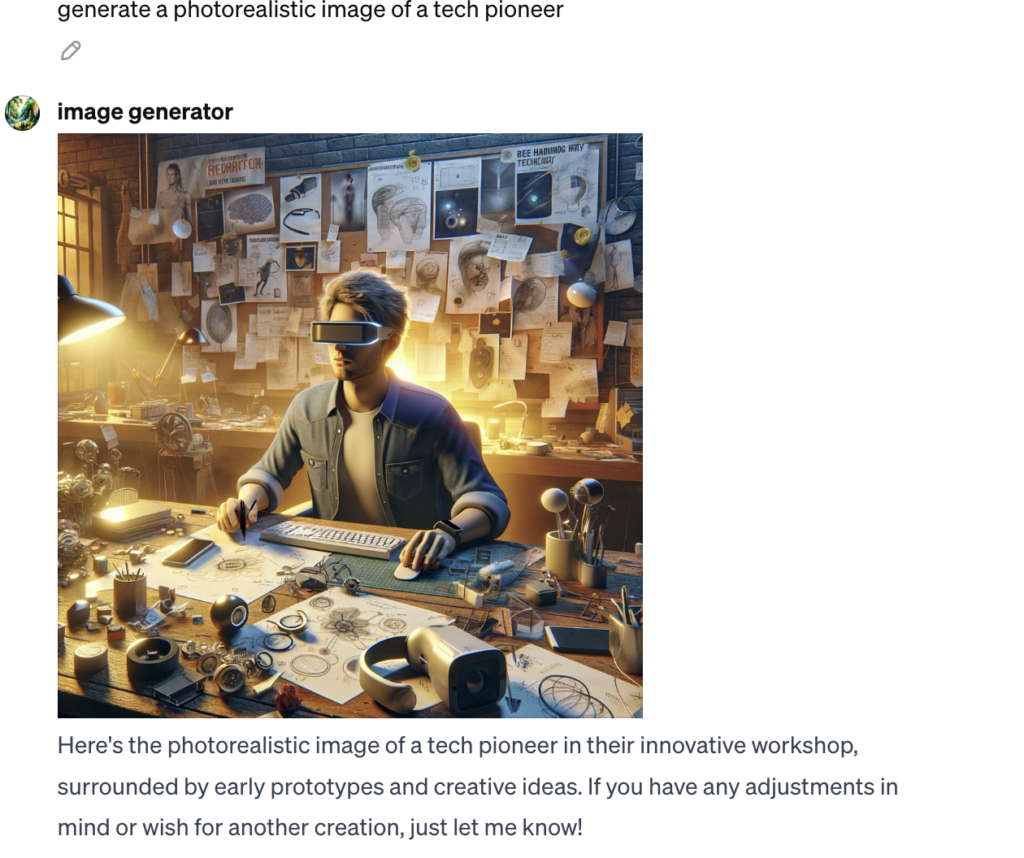
DALL-E from the ChatGPT Team prompted to return a “photorealistic image of a tech pioneer”
In 2024, these omissions are recognized not as unfortunate oversights or inaccuracies, but deliberate attempts to justify the consolidation of influence, wealth, and control generated by those who hold power within the tech industry. Without the contributions of trailblazing Black women, the world would have fewer innovations, fewer solutions for critical social issues, and a significant loss in advocacy for equality. While the impact of Black women in tech throughout the world can’t be fully explored in a single post, we are honored to recognize brilliant Black women tech leaders working to make our future more inclusive, accessible, and equitable.
Aisha Bowe: Pioneering Space and STEM Inclusivity

Aisha Bowe is Founder and CEO of STEMBoard, an award-winning woman-owned technology company that creates smart systems and software solutions. Bowe is a former aerospace engineer at NASA, an advocate for women and minorities in STEM fields, was a keynote speaker at GHC 23, and this year is slated to be the sixth-ever Black woman to travel to space.
Angel Rich: Leading the Charge for Financial Literacy in Tech
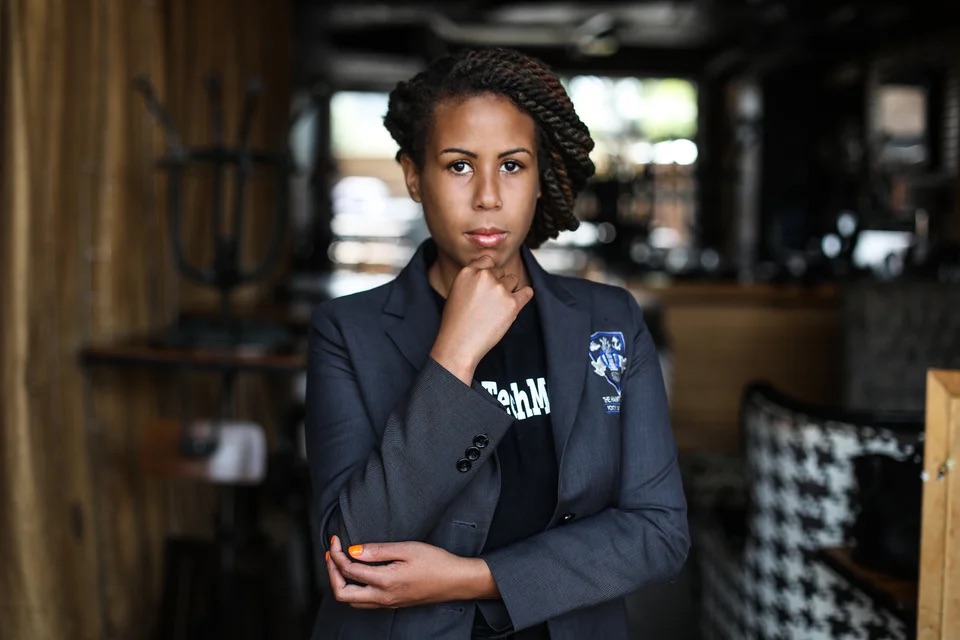
Source: Essence
Angel Rich is Founder of the AI FinTech App CreditRich, President of Black Tech Matters, author, and the youngest Black person to receive the Presidential Lifetime Achievement Award. Rich’s efforts focus on economic empowerment, education, and diversity, equity, and inclusion (DEI), and her groundbreaking work in developing financial literacy tools and advocating for historically excluded groups in technology is reshaping the landscape of financial technology and creating new opportunities for diverse communities.
Dr. Joy Buolamwini: Fighting Bias in AI
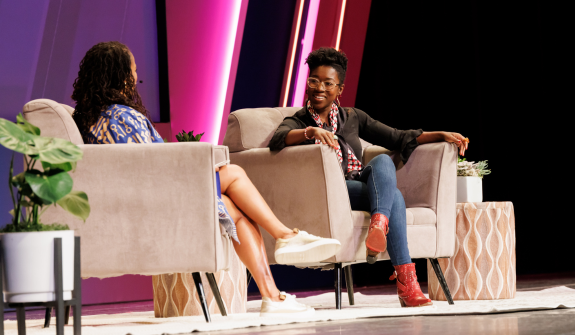
Dr. Joy Buolamwini is Founder of the Algorithmic Justice League, an organization combining art and research to highlight social implications and harms of artificial intelligence. Dr. Buolamwini is leader-in residence at the MIT Media Lab focusing on bias in AI, author of national bestseller Unmasking AI: My mission to Protect What is Human in a World of Machines, and a revolutionary voice on episode seven of AnitaB.org B The Way Forward podcast. Her work in gender and racial equity in technology has been vital in understanding and mitigating bias in AI systems, a significant issue affecting gender and racial equity in technology.
Kelsey Davis: Fostering Creative Opportunities in Tech
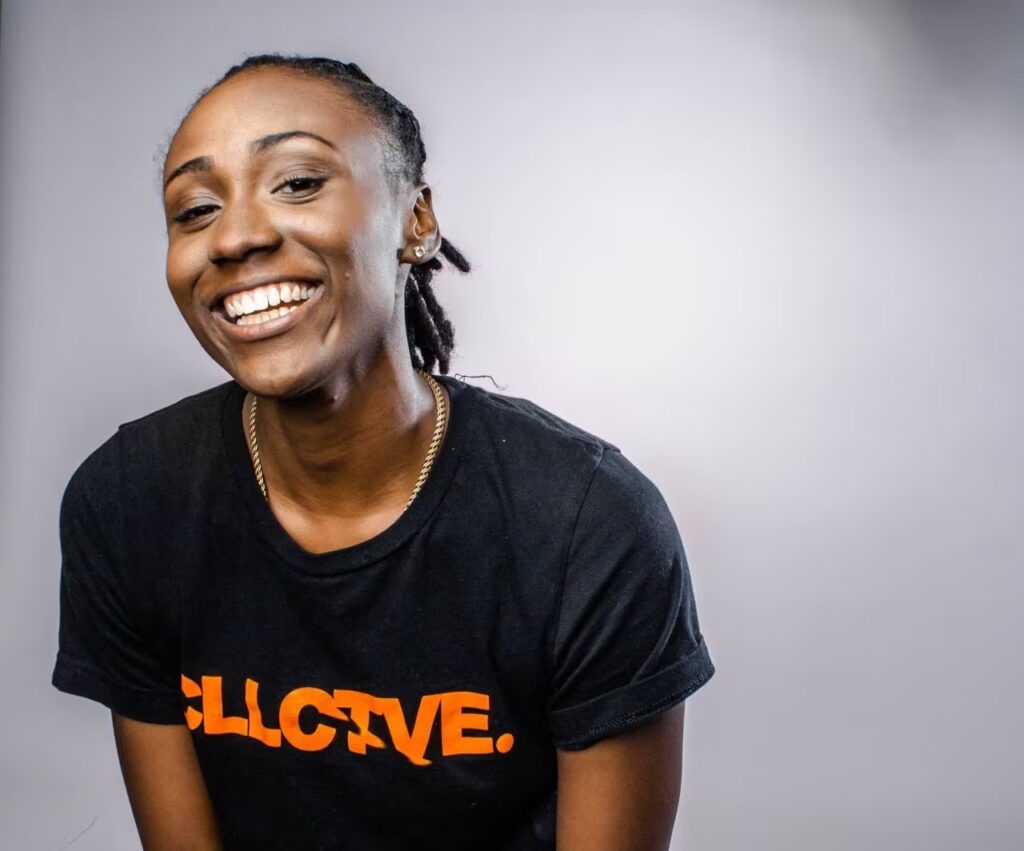
Source: Syracuse.com
Kelsey Davis is Founder and CEO of Every Human, a platform that connects creatives with opportunities, emphasizing diversity and inclusion in the tech and creative industries. Davis sits on the Board of the Tulsa Creative Engine and is Chair of Entrepreneurship & Technology for the Tulsa Juneteenth Festival. Davis’ work has been featured on Techstars, and her voice has been highlighted on TechCrunch, with additional features by Forbes, Adweek, and the NYTimes.
Arlan Hamilton: Investing in a Diverse Tech Ecosystem

Source: Arlan’s Academy
Arlan Hamilton is Founder and managing partner of Backstage Capital, a venture capital firm dedicated to minimizing funding disparities in tech by investing in high-potential founders who are people of color, women, and/or LGBT (with Hamilton identifying as all three). Hamilton is an investor, author, and guest on episode five of B The Way Forward: “Investing in Representation with Arlan Hamilton”. Last year, Backstage Capital provided $100,000 in funding to the winners of PitcHER™, an AnitaB.org pitch competition. We go deeper on the impact of Hamilton and Backstage Capital in our blog post, Arlan Hamilton: Investing in Black Women’s History.
Stephanie VanPutten: Advocating for Inclusive Employers

Source: Saluting Black LGBTQ+ Leaders in Tech
Stephanie VanPutten is Founder and Executive Director of Visible Figures, Founder and CEO of BlendScore, and executive in residence at The Equity Alliance, which invests in diverse emerging VC fund managers. Visible Figures is a platform and global network for the ‘talented tenth’ of Black women and non-binary founders, investors, inventors, and more, while BlendScore utilizes a credit-like DEI rating and employer branding platform to showcase the environmental, social, and governance (ESG) performance of sustainable businesses.
Lisa Skeete Tatum: Shaping the Future of Inclusive Leadership
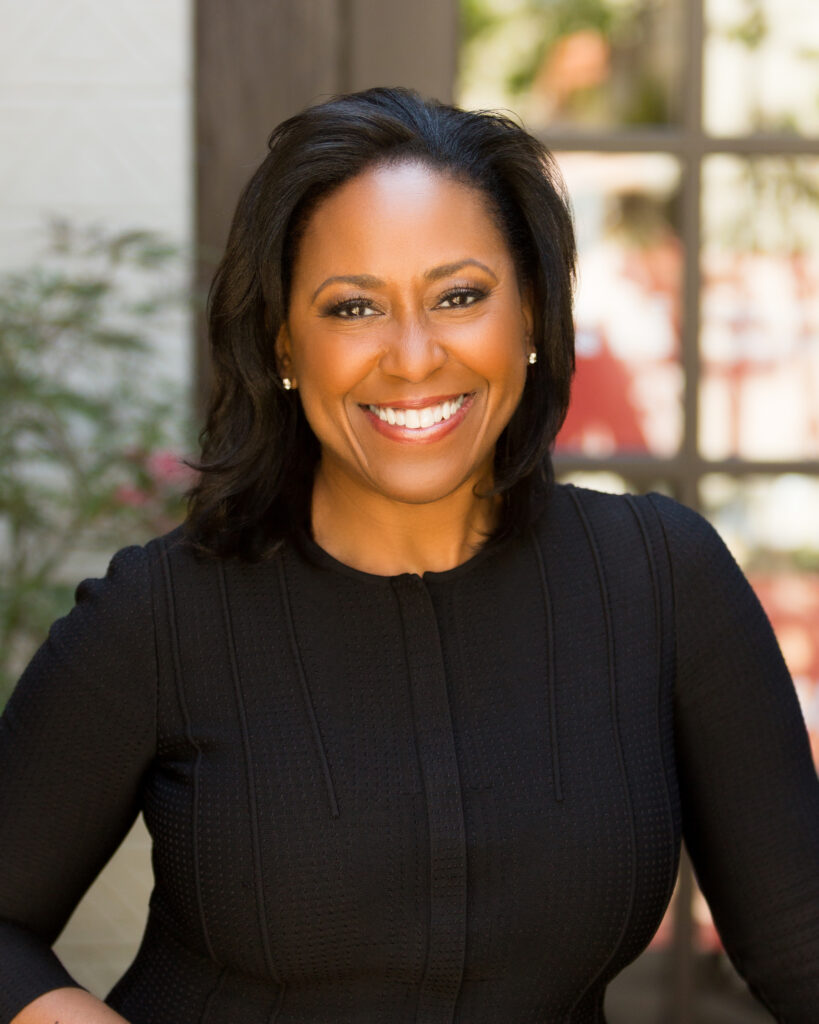
Source: Aspen Global Leadership Network
Lisa Skeete Tatum is Founder and CEO of Landit, a career platform proving the power of inclusive leadership and redefining the employee experience. Through Landit, Tatum aims to increase the success of women and diverse groups in the workplace. Tatum joins AnitaB.org President and CEO Brenda Darden Wilkerson on the Forbes 50 over 50 list. Watch Tatum’s TedTalk on Building Your Dream Team.
Morgan DeBaun: Creating Spaces for Black Community Growth

Source: Forbes
Morgan DeBaun is Founder of AfroTech and Founder and CEO of Blavity, Inc, DeBaun holds the title of entrepreneur, executive, and corporate advisor. DeBaun’s mission centers around safe spaces for the Black community to grow, learn, and feel a sense of belonging. DeBaun was a main-stage speaker at GHC 2019 – you can catch her presentation, A Discussion on Building Teams as a Leader in Tech on YouTube.
Angelica Ross: Elevating Transgender Representation in Tech

Angelica Ross is the CEO of TransTech Social Enterprises, an incubator for LGBTQ talent focused on economically empowering transgender people, and the founder of the TransTech Summit. A self-taught computer programmer, Ross’s influence extends beyond her well-known acting career into activism and advocacy, particularly within tech and LGBTQIA+ communities. At Grace Hopper Celebration 2024, Ross captivated audiences with her powerful insights on reflection, resilience, and the importance of creating equitable opportunities in tech for all. Her dedication to elevating marginalized voices continues to inspire and pave the way for a more inclusive industry.
Timnit Gebru: Championing Ethics in Artificial Intelligence

Source: Philip Keith for TIME
Timnit Gebru is Founder and Executive Director of the Distributed Artificial Intelligence Research Institute (DAIR), a space for independent, community-rooted AI research. Gebru is also co-founder of Black in AI, and board member of AddisCoder, an NPO teaching computer programming and algorithms to Ethiopian high schoolers. A widely respected leader in AI ethics research, Gebru previously co-led Google’s ethical AI team. In 2020, Gebru and Google made headlines in the field of AI ethics when leaders argued the company pushed her out because of the “inconvenient truths” highlighted in a paper she co-authored.
Shaping a Future Where Tech Empowers All
The tech world and its ancillary industries and roles are not just about hardware and algorithms, they’re about addressing complex social problems, changing the very nature of how we work, and ultimately improving the world we live in. The women listed above are answering the call and forging a path toward empowerment that can be felt across the industry.
To continue to learn about amazing women and non-binary tech leaders and how we can further empower a more diverse tech future, connect with AnitaB.org on LinkedIn and Instagram, and sign up for our newsletter.
Read more posts from the thread How to Set Career Goals in Tech That Get You Where You Want to Go
